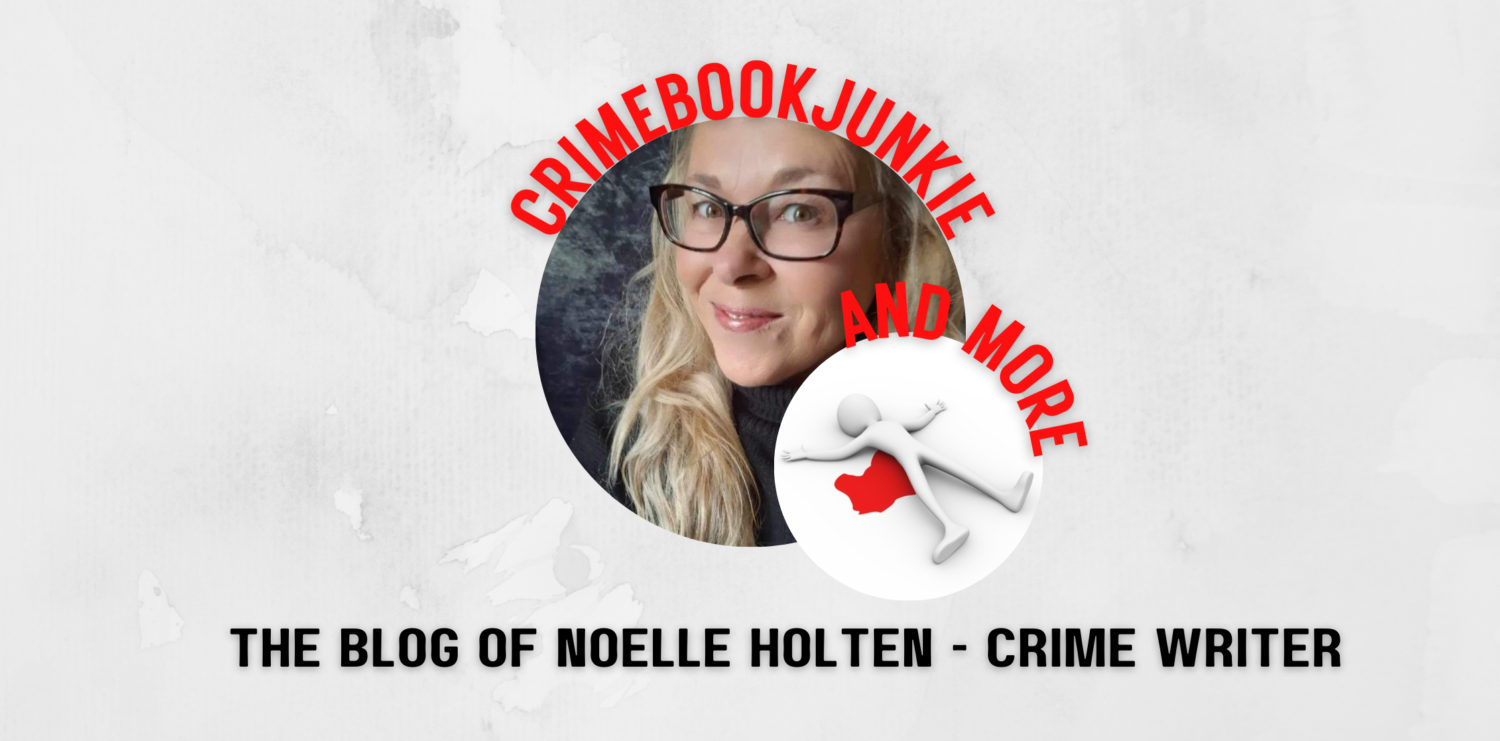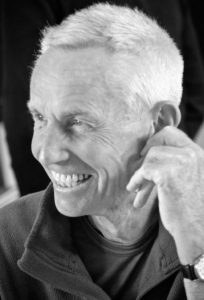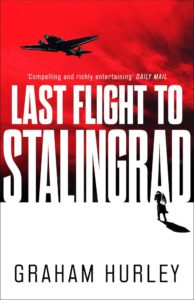Today on the blog I have an exclusive extract from Graham Hurley’s Last Flight to Stalingrad. My thanks to Head of Zeus and publicist Angela Melamud.
First how about we find out a little more about the author and the book!
About the Author
Graham Hurley is the author of the acclaimed Faraday and Winter crime novels and an award-winning TV documentary maker. Two of the critically lauded series have been shortlisted for the Theakston’s Old Peculier Award for Best Crime Novel. His thriller Finisterre, set in 1944, was shortlisted for the Wilbur Smith Adventure Writing Prize. grahamhurley.co.uk
About the Book
Berlin, 1942.
For Werner Nehmann, a journalist at the Ministry of Propaganda, the dizzying victory of the last four years has felt like a party without end. But the Reich’s attention has turned East, and as winter sets in, the mood is turning.
Werner’s boss, Joseph Goebbels, can sense it. His words have propelled Germany towards its greater destiny and he won’t – he can’t – let morale falter now. But the Minister of Propaganda is uneasy and in his discomfort has pulled Werner into his close confidence.
And here, amid the power struggle between the Nazi Chieftains, Werner will make his mistake and begin his descent into the hell of Stalingrad…
At time of posting, ebook was only 99p!
Excerpted from
Last Flight to Stalingrad, by Graham Hurley. Head of Zeus, 2021. Reprinted with permission.
They took off nearly an hour later. The ground crews and the pilots called the big three-engined Ju-52s Tante-Ju. Auntie Junkers. All the seats had been removed and the yawning space behind the pilot’s bulkhead had been packed with a jigsaw of wooden boxes, jerrycans full of fuel, and bulging sacks of mail addressed to the men in Sixth Army. Three more of the big transports were scheduled for take-off and two of them were already bumping across the airfield towards the end of the runway. Snowfall during the night had left a thin, crisp blanket of white that stretched in every direction and once Messner had completed his start-up checks, and fired up all three engines, he set off in pursuit.
Nehmann was riding in the cockpit alongside Messner. There was no one else on board. Earlier, walking out to the aircraft, Messner had warned that Soviet fighter pilots were becoming keener by the day. They were flying decent aircraft now, thanks partly to the blessings of the Lend-Lease agreement with their allies, and when the weather offered the opportunity they didn’t hesitate to get stuck in. The big old transports were sitting ducks to a Hurricane or a Thunderbolt in the right hands but Fliegerkorps VIII could still muster a respectable number of Bf-109s and he anticipated no problems en route to Stalingrad.
Nehmann had met some of these fighter pilots. Many of them had tasted combat at the hands of the French, and above all the British, but the war in the east, they all agreed, was a war apart. They said that the Ivans flew the way they drank, with a wild abandon. In the early days after the invasion, appearing in neat little formations, they’d been easy meat, but they had radios now and they’d lifted a trick or two from the Luftwaffe rulebook when it came to the intimate violence of a dog fight. Take the enemy by surprise. Stay close. Then get closer still.
Nehmann was shivering again. At ground level he’d been grateful for the warmth from the cockpit heater, but as they climbed away from the airfield the temperature was rapidly sinking and even Messner’s extra layers of clothing seemed to make no difference. Already, when he shaded his eyes against the blinding sun, he thought he could see the towering columns of smoke that had to be Stalingrad.
‘One of our fighter guys mentioned a friend of yours,’ Nehmann shouted.
‘What?’
‘A friend of yours. Dieter Merz?’
The roar of the engines was deafening but they both had headsets and the name sparked a nod from Messner.
‘We called him der Kleine,’ he said. ‘Lovely man until his luck ran out.’
‘He’s dead?’
‘All but. He lives with that wife of mine. Maybe I should be grateful. Maybe she should, too.’
Nehmann blinked. This was a new Messner, someone he hadn’t glimpsed before. The sheer act of flying seemed to have transformed him. He was carefree. He’d shed whatever had tethered him before. His gloved hands were steady on the control column. His fur-lined flying jacket was zipped to the neck. Folds of silk scarf were just visible beneath his chin. He’s loving this, Nehmann thought. It’s set him free.
The Bf-109s slipped into formation around them, half a dozen of the sleek little fighters, the pilots saluting the big old Tante-Juswith a cavalier wave. Nehmann watched them a moment, silver-grey fish against the blueness of the sky, throttled back, riding little cobblestones of turbulence with a grace that seemed itself a thing of beauty. The sight was deeply comforting and Nehmann smiled to himself, the icy cold forgotten. Then, without warning, they were gone.
Nehmann looked across at Messner. His eyes were on the move now behind the aviator glasses, his head swivelling left and right. The 109s had peeled away, climbing for height. Then came a blur of movement, right to left, something stubby and fat that seemed to pass an inch in front of the Junker’s nose, and Messner swore softly, pushing the Ju’s nose down, as another Soviet fighter suddenly filled the windscreen. Nehmann caught the twinkle of cannon fire and felt the airframe shudder as the shells found their target. One of the engines was already trailing black smoke and Nehmann watched as Messner’s right hand danced along a bank of switches, triggering the fire extinguishers, trying to minimise the damage. The beat of the engine slowed, and the propeller began to mill in the airstream.
Nehmann could taste fear in his mouth. So sudden, he thought. And so final. This was the violence that the fighter pilots he’d talked to found so hard to describe. One moment you have a seat in the gods, omnipotent, invulnerable. The next, you’re the plaything of gravity, probably on fire, a hostage to bad luck or your own lousy judgement. Half a second, that’s all it takes. Half a second, and then an eternity of regret.
The dog fight, as far as Nehmann could judge, was in full swing. Looking up through the glass canopy, he could see a Bf-109 chasing one of the Soviet fighters, quarry and hunter, the Bf matching the Ivan’s every move, wingovers, stall-turns, and a sudden gut-wrenching dive that nearly worked. Then came a brief burst of fire, the Luftwaffe-blue tracers clearly visible, and the powerful little Soviet fighter was suddenly cartwheeling away, one wing severed, a tiny black dot falling out of the cockpit. Moments later came the blossom of the parachute and a grunt of triumph on the R/T.
Nehmann stole a glance at Messner. The grin, at last, was unforced and Nehmann realised what he should have known from the start, that Messner’s face had been wrecked for exactly an occasion like this. Go through a windscreen, even at ground level, even in the clutches of the Berlin blackout, and moments like these were what remained of life’s pleasures.
‘Kamerad.’ It was Messner. He was nodding at the wind- screen, talking to himself. The grin, if anything, was wider than ever.
Nehmann tried to focus. At first, he could see nothing. Then, out of nowhere, came a huge engine, wings, a tailplane, even a face in the cockpit. Messner held his nerve. The Ju was falling like a stone, a nearly vertical plunge that made the airframe beg for mercy. The entire aircraft was shaking. Something had come adrift in the cargo area behind them and Nehmann heard a splintering of wood before the big old aircraft began to level out, Messner hauling back on the control column, every metal panel groaning around them.
Below, almost within touching distance, was the first scatter of buildings that signalled a major city. Bomb craters instead of gardens. The charred remains of house after house. Tottering brick chimney stacks. Tank tracks across a patch of grass that might once have been a school playground. Then, all too briefly, a kneeling figure in Wehrmacht grey, crouched over a series of red and white panels. He glanced up, one arm raised as they thundered over.
‘Scheisse.’ Messner’s voice in Nehmann’s headset. ‘We’re too far fucking north.’
They landed minutes later. The airfield at Pitomnik was fifteen kilometres west of the city centre. Of the Soviet fighters, mysteriously, there was no sign. The storm had gathered and broken and now – apart from curls of oily smoke from the port engine – there was absolutely nothing to indicate how close they’d come to disaster.
Nehmann let Messner shut the engines down before he removed his headset. The edges of the airfield were littered with the wreckage of planes that would never fly again, broken toys in this pitiless war, but here beside the waiting trucks a line of Tante-Jus were being unloaded. Already, Nehmann could hear hands tugging open the big door in the rear of the aircraft, then a voice raised as someone clambered inside. The whole plane began to rock as the stack of jigsawed cargo was unpicked and the first wooden boxes found unseen hands below. The entire workforce, it seemed to Nehmann, were wearing items of Soviet clothing.
‘Thank you.’ He leaned across and extended a hand. ‘I mean it.’
Messner peeled off a glove. His flesh was warm to the touch and he held Nehmann’s gaze.
‘You see what we do?’ The grin again, exultant. ‘You see what happens? The guy that came at us? That was an I-16. We called them Ratas in Spain. They run out of ammunition, but it makes no difference. Mano a mano, my friend. You speak Spanish?’
Nehmann nodded. What little he knew was enough. Mano a mano. Hand to hand. No quarter.
‘He was trying to ram us?’
‘Of course.’ Messner smacked a fist into his open palm. ‘Bam. You wake up in heaven with an aeroplane in your lap. Tell that to your Promi friends. We were lucky, Nehmann. He could have pushed forward, caught us on the dive, taken our tail off. He didn’t.’
Luck? Nehmann shook his head, struggled out of his harness, still living those moments when his forward view, the rest of his brief, brief life, held nothing but the certainty of oblivion. The oncoming Rata. The manic face in the cockpit. Not luck at all, he thought, but raw nerve, and years of experience, and the fabulous gift of those precious milliseconds that can spare you for another dawn.
‘I used to believe in levitation.’ Nehmann put a hand on Messner’s arm. ‘Now I know it’s true.’



